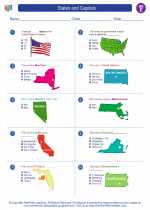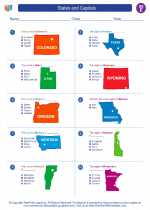Buddhism
Buddhism is a major world religion that was founded in ancient India by Siddhartha Gautama, who later became known as the Buddha. The core teachings of Buddhism revolve around the Four Noble Truths and the Eightfold Path, which provide a framework for understanding the nature of suffering and a path towards enlightenment or Nirvana.
Key Concepts in Buddhism
- Four Noble Truths: These are the foundational principles of Buddhism, which outline the nature of suffering, its causes, and the path to liberation from suffering.
- Eightfold Path: This is the set of guidelines for ethical and mental development, which forms the core of Buddhist practice.
- Karma: The concept of cause and effect, where one's actions and intentions have consequences in this life and the next.
- Reincarnation: The belief in the cycle of birth, death, and rebirth, driven by karma.
- Nirvana: The ultimate goal in Buddhism, representing the state of enlightenment and liberation from suffering.
Branches of Buddhism
Over time, Buddhism has evolved into different branches or schools, each with its own interpretations and practices. The major branches include:
- Theravada Buddhism: Also known as the "Doctrine of the Elders," this branch emphasizes the original teachings of the Buddha and is prevalent in Southeast Asia.
- Mahayana Buddhism: This branch, prevalent in East Asia and Tibet, emphasizes the potential for all beings to achieve enlightenment and includes diverse practices such as Pure Land and Zen Buddhism.
- Vajrayana Buddhism: Also known as Tibetan Buddhism, this branch incorporates esoteric rituals and practices aimed at achieving enlightenment in one lifetime.
Study Guide
To study Buddhism effectively, consider the following key areas:
- Understand the life of Siddhartha Gautama and the events that led to his enlightenment.
- Examine the Four Noble Truths and their significance in understanding the nature of suffering.
- Explore the Eightfold Path and its practical application in daily life.
- Compare and contrast the major branches of Buddhism, including their beliefs and practices.
- Discuss the concepts of karma, reincarnation, and Nirvana, and their role in the Buddhist worldview.
By delving into these key concepts and branches, students can gain a deeper understanding of the rich and diverse tradition of Buddhism.
[Buddhism] Related Worksheets and Study Guides:
.◂Social Studies Worksheets and Study Guides Fifth Grade. States and Capitals
Study Guide States and Capitals
States and Capitals  Worksheet/Answer key
Worksheet/Answer key States and Capitals
States and Capitals  Worksheet/Answer key
Worksheet/Answer key States and Capitals
States and Capitals  Worksheet/Answer key
Worksheet/Answer key States and Capitals
States and Capitals 

 Worksheet/Answer key
Worksheet/Answer key
 Worksheet/Answer key
Worksheet/Answer key
 Worksheet/Answer key
Worksheet/Answer key

The resources above cover the following skills:
Geography: A student should be able to utilize, analyze, and explain information about the human and physical features of places and regions. A student who meets the content standard should:
Understand that a region is a distinct area defined by one or more cultural or physical features.